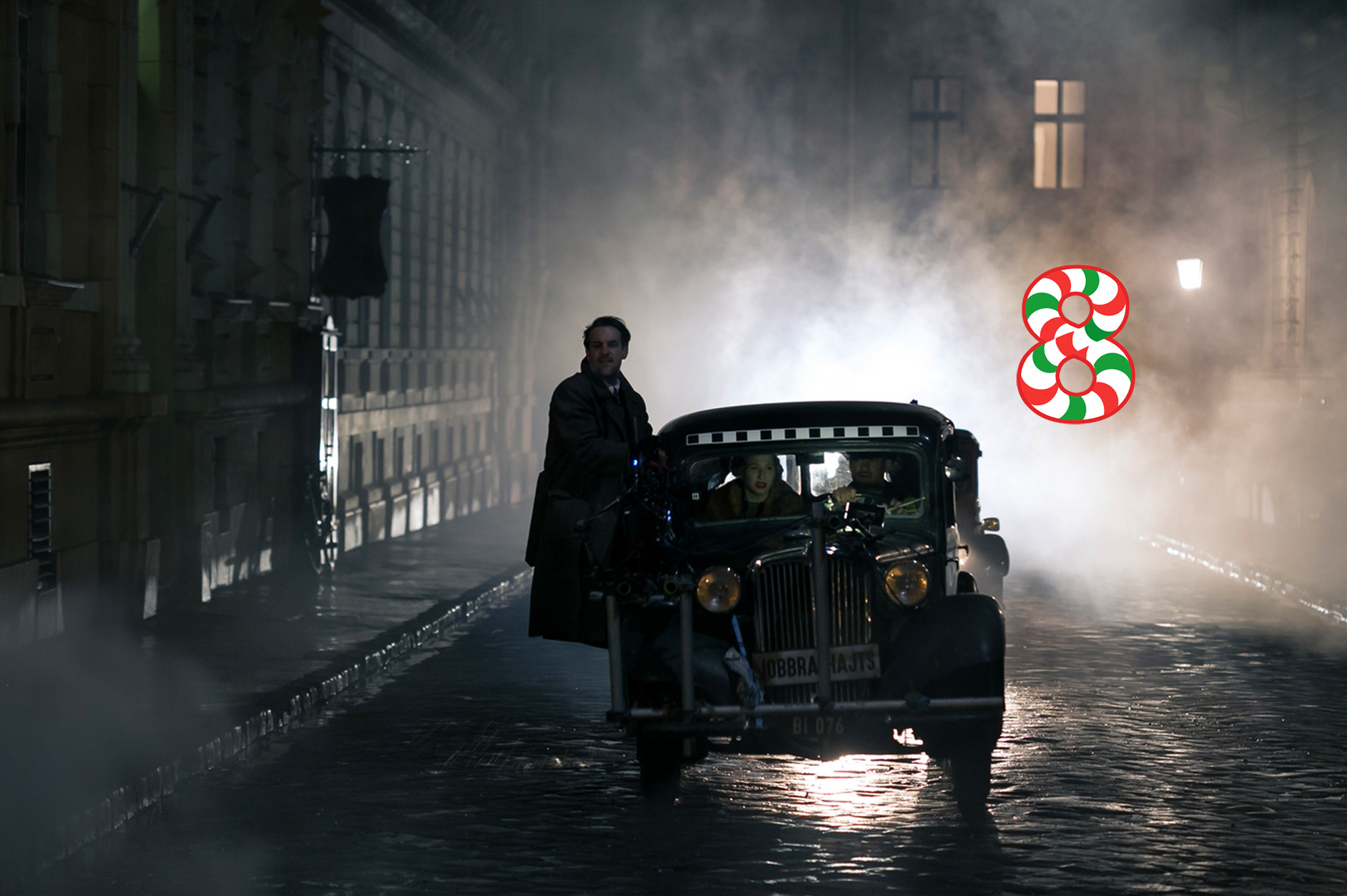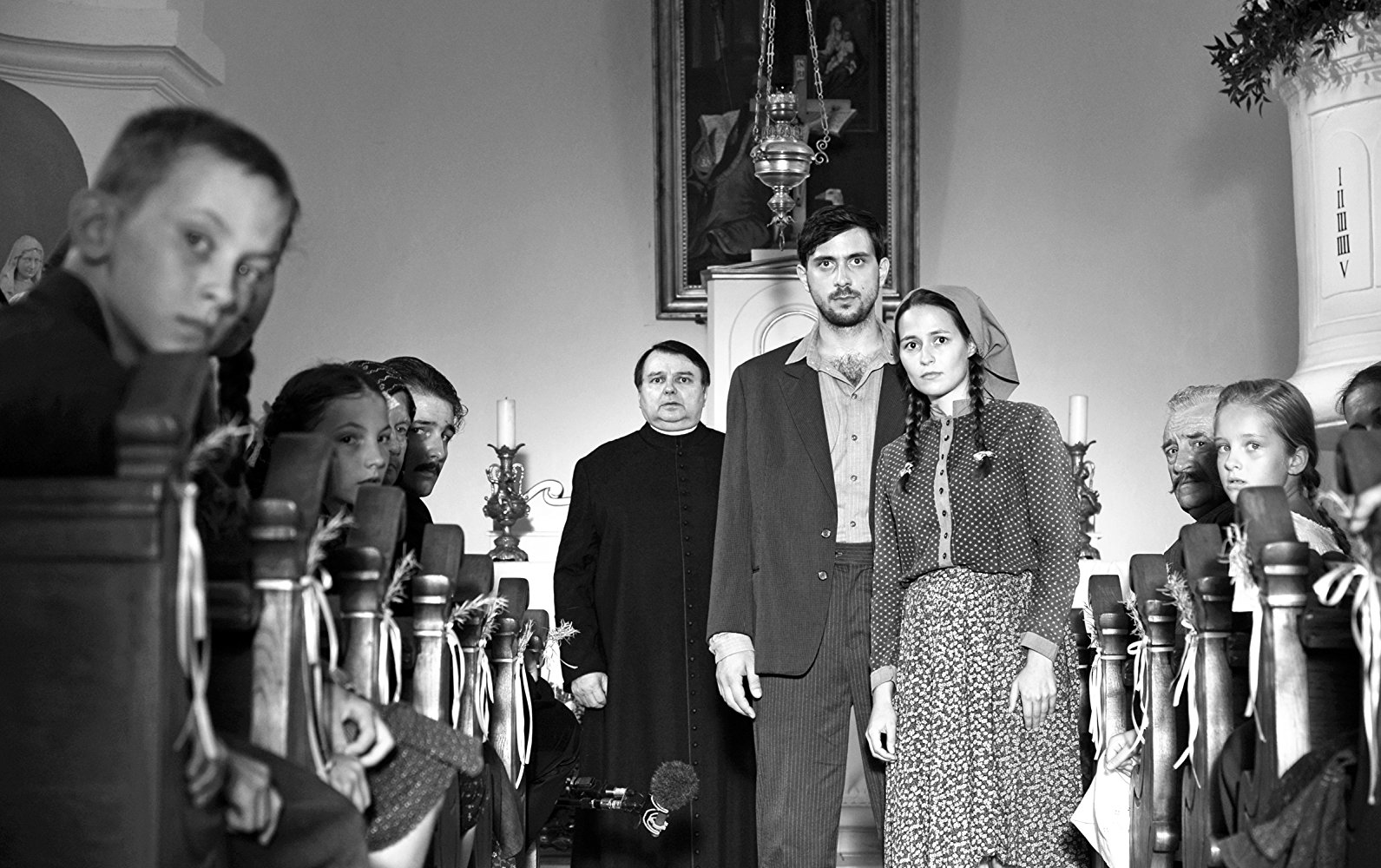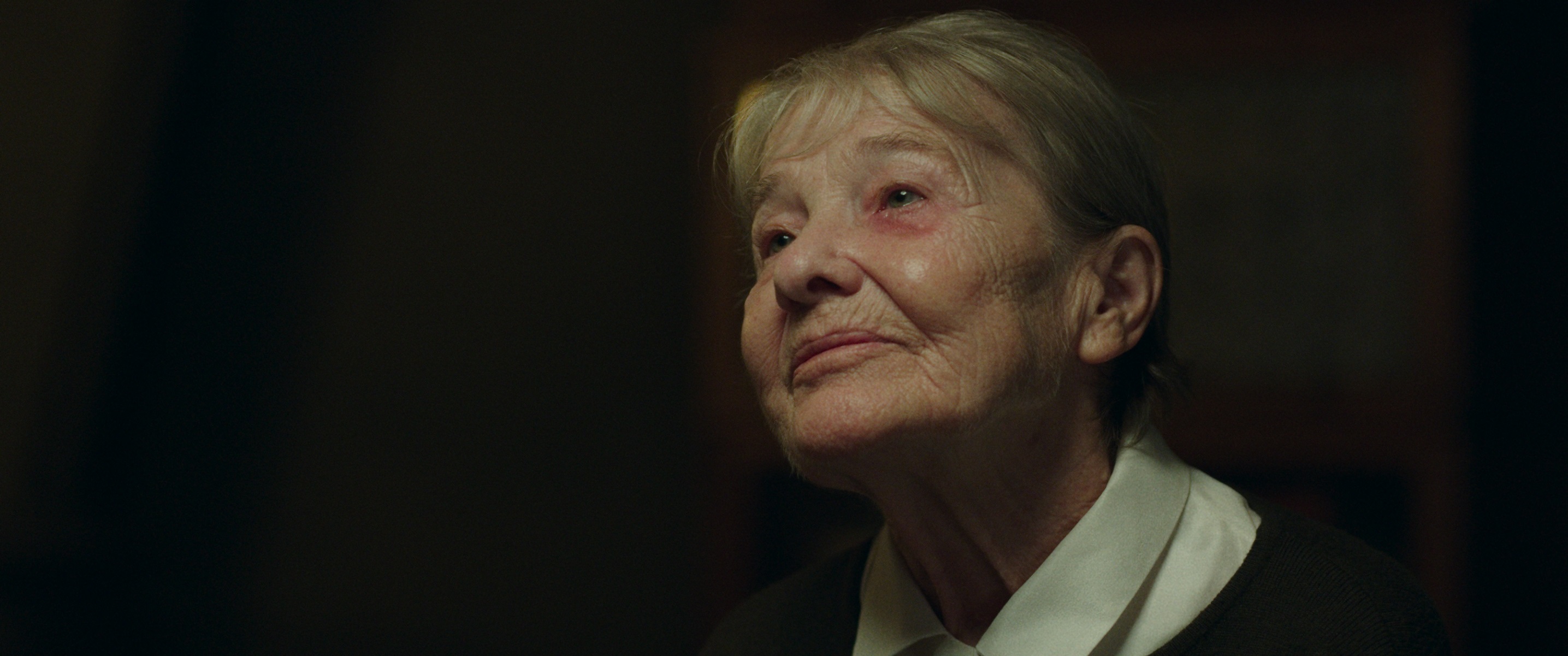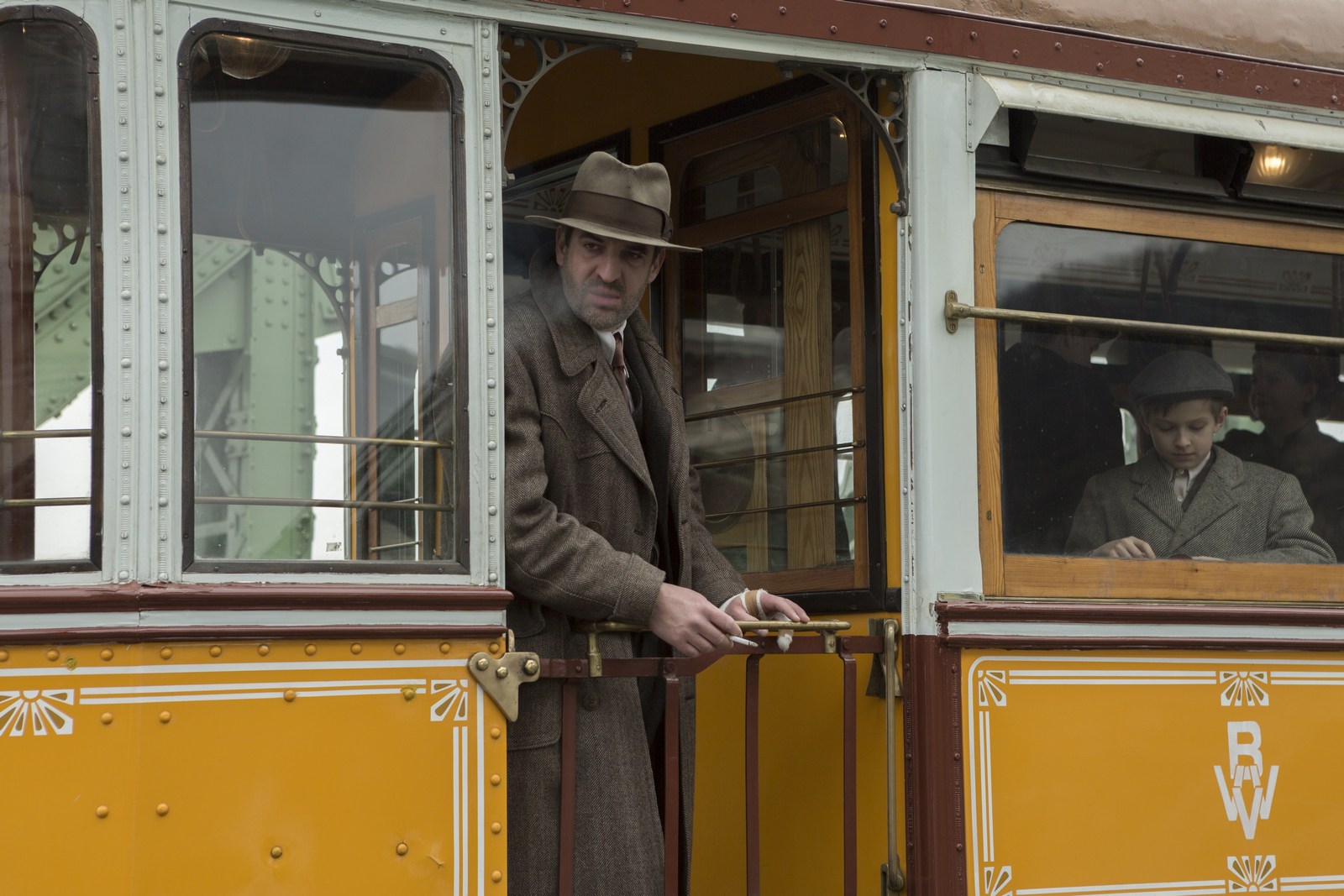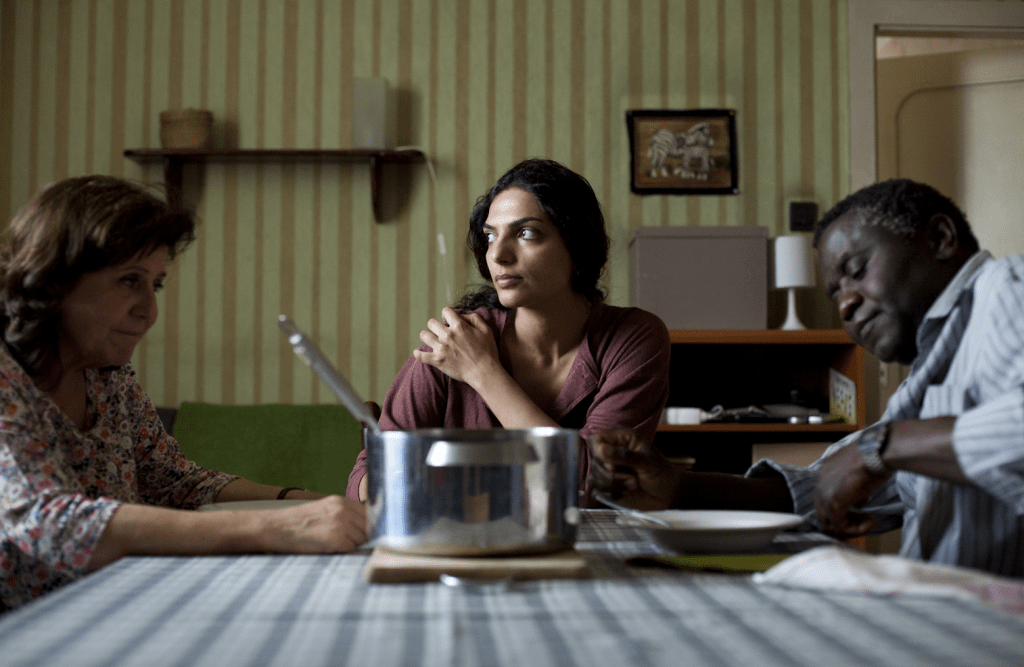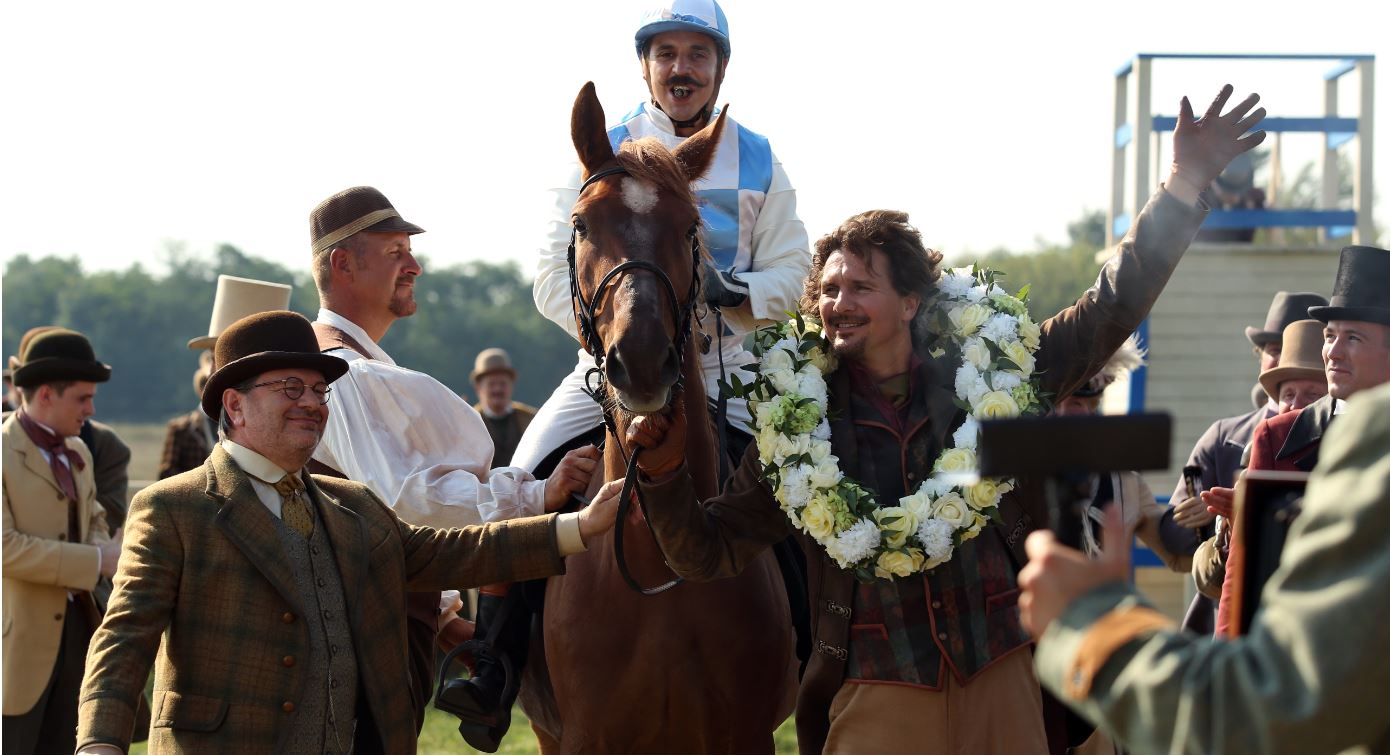Why do We Love Budapest? Because it’s a great city, great for dining, great for drinking, great for culture. Film stars love it. Here at We Love Budapest, we select the Great 8s, the best venues, movies and events to grace our fair city in 2017. Today we bring you the Great 8 films of the past year – including Hungary's Oscar entry – that also charmed audiences at the world's major film festivals. From the true tale of the country’s most famous bank robber to a surreally beautiful love story, we bring you 8 fantastic films of 2017 that are well worth a revisit. Bring on the snacks and cozy up!
1/8
1945
In this mournful drama shot in black-and-white, as the Berlinale’s official description puts it, “a Hungarian village becomes a mirror for the failure of an entire society”. In the film, the life of simple Hungarian villagers gets stirred up when two Orthodox Jews unexpectedly arrive at the train station with mysterious boxes. The townspeople are getting ready for the wedding of the notary’s son, but when the mysterious men arrive, tricky questions arise. Guilt about their ill-gotten gains – and fear of losing them – overwhelm the villagers who moved into the abandoned properties of Jews who were deported during World War II. Over the course of a single day, everything changes...
2/8
A Viszkis
A Viszkis tells the strange but true story of Attila Ambrus, Hungary’s Whiskey Robber, who became (in)famous for committing 30 robberies around Budapest in the ’90s, each after knocking back a glass – or two – of Johnnie Walker. Ambrus played cat-and-mouse with the authorities for six years, once fleeing a crime scene by diving into the Danube and even escaping from prison, becoming a folk hero in the process. The film has been a huge success in Hungary, edge-of-the-seat entertainment with jaw-dropping action scenes and off-the-wall humor – especially amusing and noteworthy for a Hungarian film. To learn more about the Whiskey Robber’s incredible story before watching the film, read our interview with him.
3/8
Aurora Borealis
“We cannot let our past ruin our present,” says Mari, one of the lead characters in Aurora Borealis, who is holding onto her heavy secrets that no woman would like to bear. The audience gets to know her story through two timelines. Back in 1953, Mari, a village girl has fallen for the descendant of an aristocratic family, Ákos, and the pair decides to escape to Austria together – but it doesn't work out. After being harassed by soldiers, Mari has to start a new life alone and pregnant in occupied Vienna. The other storyline is in the present, unfolding the events through the recollections of old Mari, now a pensioner living in her old village. When one day she gets a letter from Russia and falls into a coma, her daughter, Olga, comes back to care for her. Suspecting something about her mother’s past isn’t quite right, she starts investigating and finds out shocking secrets about their lives. Making Aurora Borealis, eminent Hungarian director Márta Mészáros was inspired by the invisible generation of children conceived by love or violence and born during the war or occupation.
4/8
Budapest Noir
Sounds of kisses and slaps, cars speeding down cobblestoned streets, fingers eagerly hitting the keys on typewriters, and the scent of cigarettes and bourbon lingering in the air; this is Budapest in the ’30s, wonderful and ever charming, the perfect backdrop for a film noir. In the story of Budapest Noir – a film based on a Hungarian novel – a beautiful young girl is found dead and no one seems to want to investigate. Except for Gordon, a crime reporter who has a gut feeling that everything is not what it seems. Alongside his photographer friend, Krisztina, he goes after the story, but it seems like certain someones do not want the truth to come to light…
5/8
The Citizen
The third feature film by award-winning Hungarian director Roland Vranik, The Citizen follows an African refugee, Wilson, who aims to lead a sedate life as a security guard at a Budapest shopping center, striving to become a model Hungarian citizen. However, when he fails the citizenship exam for the umpteenth time, he decides to take private civics lessons from Mari, a teacher who specializes in Hungarian history and culture. The two fall in love, and Mari abandons her marriage to move into the man’s apartment. However, she’s not the only woman living there – Shirin, an Iranian girl who escaped from Hungary’s refugee camp in Bicske, has been living there illegally for months, and gave birth in the small bedroom, with the assistance of Wilson. She had to leave Iran because of the unwanted pregnancy resulting from an extramarital relationships, which would have been punishable by death in her native country. Shirin’s only chance is to get married to Wilson, thus rising the stakes in his struggle for Hungarian citizenship and keeping the new-found love.
6/8
Jupiter’s Moon
This Magyar movie was a huge success at the Cannes Film Festival earlier this year. The audience gave the film a standing ovation at the premiere, which echoed the sentiments expressed by several international reviewers: Hungarian director Kornél Mundruczó has been compared to such renowned names as Steven Spielberg and Alfonso Cuarón. In this film, a Syrian refugee, Aryan, is shot at the Serbian-Hungarian border while trying to escape, but for some reason he gains superpowers. Not only does he stay alive, but becomes able to fight the power of gravity by levitating anytime he wants. The doctor at the refugee camp, Gábor Stern, whose career went off track due to a deadly incident of medical malpractice, does not believe his eyes at first, but soon decides to exploit Aryan’s extraordinary abilities. However, the policeman who shot Aryan has every reason to worry about accounting for his crime, and starts chasing both the refugee and the doctor.
7/8
Kincsem
Kincsem is Hungary’s most expensive domestic production to date, and the biggest homegrown blockbuster of the last ten years. Using the true story of a Hungarian race horse as a backdrop, the film tells a made-up story of a man after money, romance and revenge. Kincsem was the most successful thoroughbred race horse in history, having won 54 races for 54 stars at various tracks around Europe, a record still unbeaten. The film leads viewers into all schemes and secrets of the decadent 19th-century high society at the peak of the Austro-Hungarian Empire, and even though it does not describe true events – except for Kincsem’s endless wins – it is old-school entertainment well worth watching.
